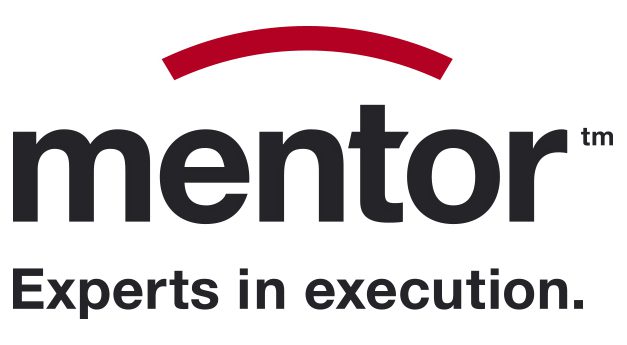How to make a PMO really work for you
Mainstream opinion believes all you need to run a business-critical program is a PMO
If it’s that simple, why do so many programs flameout and fail to deliver? Too many executives believe all you need to run a business-critical program is a Program Management Office, PMO. “PMO” is a universal management catchphrase.Like penicillin’s triumph over once-fatal bacterial infections, it’s seen as a miracle-cure for program success. The mantra seems to be, “let’s have a PMO!”
Even though top managers talk knowingly about “a PMO,” few have any more than a hazy view about what it is – or what it does.
When pushed, many say it’s about “keeping score”, “telling us where we are”, “providing the glue that holds things together”, or “speaking sternly” to delinquent managers.
A moment’s thought tells you these clapped-out clichés are voiced by people who have zero idea about what should go on in a PMO.
But what you don’t know can kill you . . .
Confusion is rife about what a PMO is, what style is needed for different types of program and how they should be staffed.
It is a major contributor to program flameouts.
There are three styles of PMO: Supportive; Controlling; and Directing.We’ll outline the first two now – and handle the third later on.
A “Supportive” PMO is one where programs are loosely controlled. The PMO acts as a clearing-house for on-demand expertise, best practice and templates.
Businesses using a “Controlling” PMO force staff to use support provided by the PMO – and comply with various company-wide governance, methodologies, templates and forms.
Classically, both types of PMO are central organisations and invariably seen in the business as needless “overhead”.
Dismal template-driven processes, with colourful bar charts – mostly staffed with process and coordinator types who aren’t experienced enough to make any real contribution to a business-critical program.
It’s almost unheard of to find anyone in a “Supportive” or a “Controlling” PMO with end-to-end accountability for delivering a complex business-critical program.
Few, if any, of these PMOs could run a business-critical program.
Most are the equivalent of management accountants. They can document plans and produce monthly reports – but Gantt charts and Prince2-itis alone doesn’t cut it on business-critical programs.
This doesn’t mean there are no good people in “Supporting” or “Controlling” PMOs. There are.
But they can be hamstrung by unreasonable constraints thoughtlessly created by ill-informed executive management.
The idea that “process” and well-intentioned managers outdo experience, good judgement and leadership is a management delusion – the doctrine of misplaced conviction.
The thought of a management accountant being accountable for delivering revenue and profit is ridiculous. It would never enter a CEO’s head. Just as a management accountant could never be accountable for delivering a budget, a “coordinating” PMO could never be accountable for delivering a business-critical program.
Top management easily grasps the accounting example, but time after time, fails to distinguish between the traits of a “coordinating” PMO and a “directing” style of PMO – the lifeblood of a business-critical program.
Here’s how misplaced ideas on PMO-types gather pace
Few businesses have run a true business-critical program in the previous 2-3 years. Regular incremental change programs, yes – but business-critical programs, no.
But management teams usually claim they have experienced program management skills in-house – even though the most senior people haven’t been near a business-critical program for many years. If ever.
They talk about a crew of project managers “somewhere” in the business, trained in world-class processes. They may have the manuals – but it is exceptional if they always follow their own processes. And the “experienced crew” hardly ever materialises.
That’s why a third style of PMO is needed – a “Directing” PMO, with a core team of key specialists.
The “Directing” PMO goes well beyond “co-ordinating.”
It actually takes execution responsibility for business-critical programs.
Typically, reporting to a C-Level Executive, it provides critical program management skills and experience; owns the resource, and controls the budgets to direct and manage a program portfolio.
This guarantees consistency across the portfolio – and gives programs the best possible chance of success.
Each year reveals yet more high-profile examples of huge programs that have stumbled badly or been cancelled at vast expense. The reasons business-critical programs crash remain constant.
Explanations are always the same; they’re depressingly consistent. Vague objectives; fantasy plans; hopeless control systems – not to mention truant sponsorship; karaoke program management and under-resourced teams.
Unworkable organisation structures are central to every failure; structures that baffle, complicate and scatter accountability.
The BBC’s farce a couple of years ago on its DMI program, is a valuable warning. Over £100M written off. Scandalous.
But guess what? Only one person was blamed – a scapegoat – and it wasn’t the CEO.
Too many businesses try, in vain, to deliver business-critical programs – without the experience, skill and organisational clout of a “Directing” PMO.
Things you don’t do today will have consequences tomorrow. What type of program are you running – regular or business-critical?
Sniff the ammonia capsule of reality. Take two critical decisions – and then act decisively on them. Make an accurate choice about which PMO style to use – and staff it with experienced people.
You wouldn’t knowingly allow a newly qualified heart surgeon – with limited practical experience – to operate on you.
C’mon! You wouldn’t! Why roll the dice?
Choosing the right style of PMO and using people with proven experience have an incredible impact on delivery and financial results.
You can ask us anything you like about your business-critical programs. If you crave no-nonsense, reality-based advice, get in touch now on +44 (0) 1189001252 for a confidential talk.Or email us at: enquiries@mentoreurope.com.


